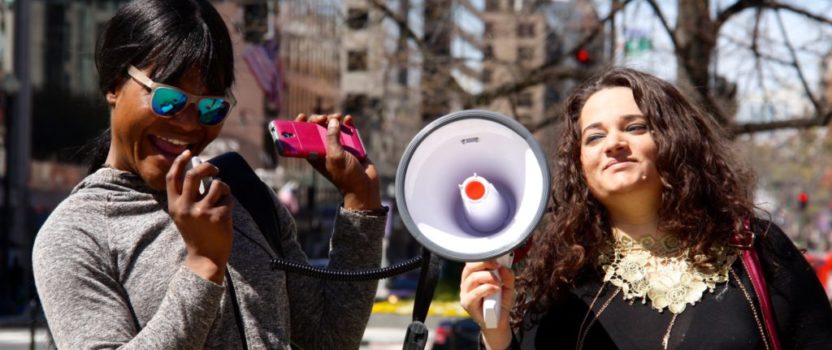We pulled our #SHPA together!
We did it: In an enormous victory for DC’s #MeToo movement, the Street Harassment Prevention Act (SHPA) PASSED today!
Moved by your stories and your advocacy, the D.C. Council passed SHPA — landmark legislation that embodies our belief that everyone in our city should be able to navigate their daily lives, walk down the street, use public transportation, and go out at night without fear of harassment or assault.
According to a 2018 study by Stop Street Harassment, 81% of women and 43% of men have experienced some form of sexual harassment in public spaces. Previous studies have shown that rates of harassment and assault are higher among women and LGBTQ people of color. With SHPA in effect, DC will be the first U.S. city to collect citywide data on street harassment — allowing advocates and government leaders to better understand the problem and the ways it impacts different communities in our city.
SHPA will bring us closer to a vision of a city free from harassment, using a community-based and non-criminal approach that recognizes the harms that the criminal legal system inflicts on DC’s most marginalized communities, and especially women and LGBTQ people of color. Instead of It was dreamt up by community and will be implemented by the community. The DC Council heard us when we said that truly innovative solutions come from those most impacted and on the frontlines.
What Does This All Mean?
The Street Harassment Prevention Act, or SHPA, has 5 important components:
- Collection the first citywide data on street harassment to better understand the extent of the problem and the ways it impacts DC’s most marginalized communities
- Training for all DC government employees to recognize and respond to harassment, setting the tone for what behaviors will not be tolerated in our city and modeling the expectation that it’s on all of us to keep our community safe
- First legal definition of street harassment that includes protections for the 19 identities covered under the DC Human Rights Act. Importantly, SHPA defines and collects data on harassment against people experiencing homelessness targeted on the basis of their housing status, even though this is not yet a protected trait.
- A citywide public awareness campaign to send a message of support to survivors, connecting them with resources and letting everyone in our city know: You deserve to be treated with respect.
- A committee of community representatives and DC agency representatives to steward SHPA’s implementation and track our progress toward building a city free from harassment.
At its core, street harassment is an issue of civil rights and equal access to public spaces: street harassment most impacts women of color, LGBTTSGNC+ people, those experiencing homelessness, those in the sex trade, and especially those living at the intersection of these and other marginalized identities.
We are grateful for the leadership of Ward 1 Councilmember Brianne Nadeau, sponsor of the legislation, and our champions on the Council for ensuring that
While we celebrate this enormous step toward building safety, we recognize that the fight isn’t over. Incidents like last week’s assault of a Black woman by Metro Transit Police over fare evasion and the frequent police harassment of sex workers demonstrate that data and training aren’t enough to end harassment. We must address the structural violence that perpetuates police harassment and brutality in order to build safety for everyone.

